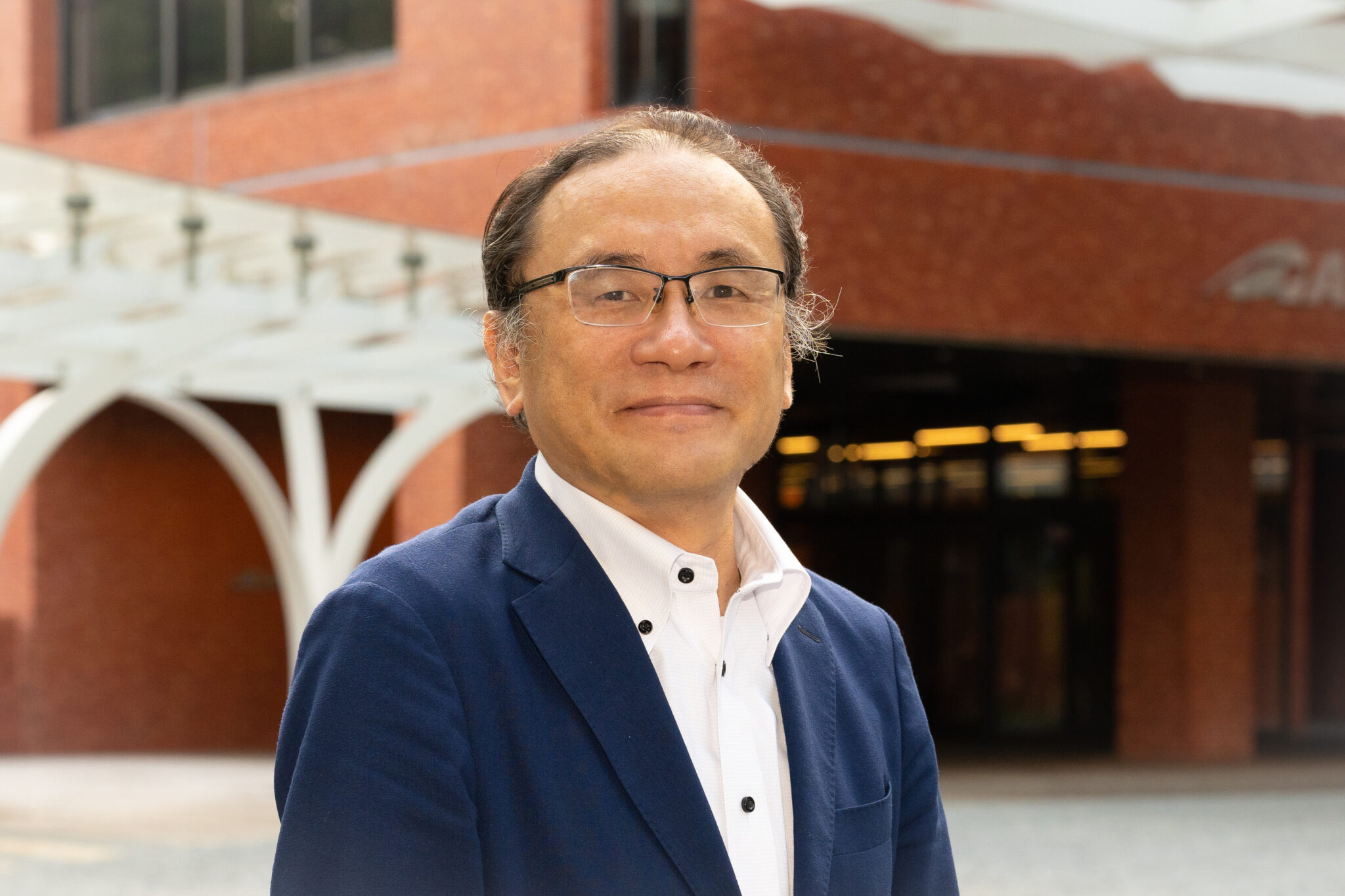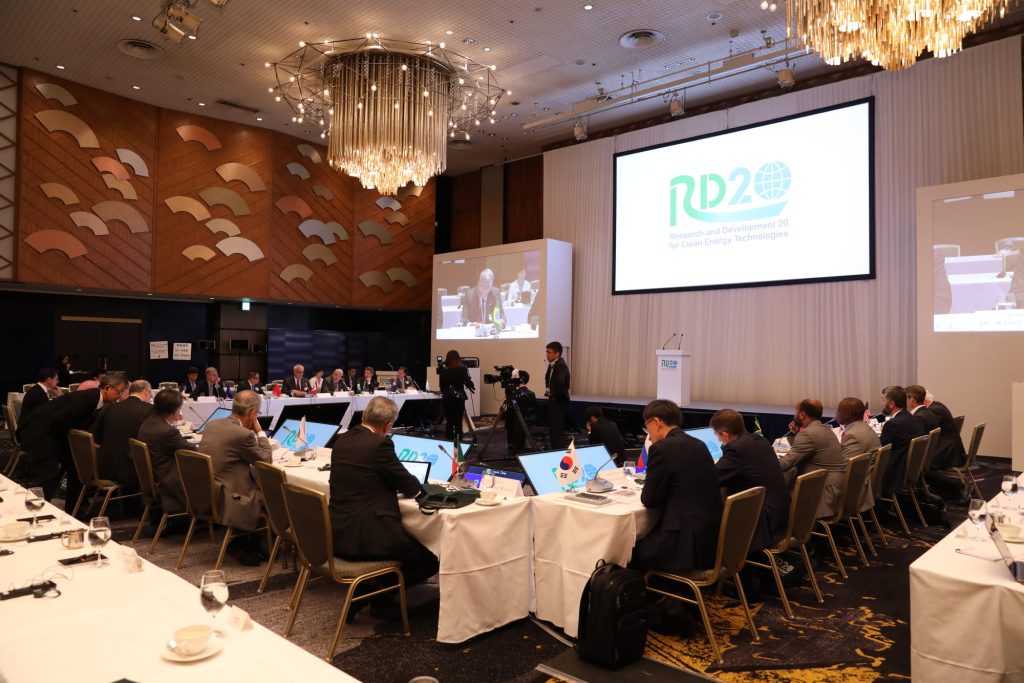
Dr. KONDO Michio
Global Zero Emissions Research Center, National Institute of Advanced Industrial Science and Technology
Research and Development for Clean Energy Technologies (RD20), which launched in 2019, is an international R&D framework for achieving carbon neutrality. At its past three conferences there have been few participants from overseas and there is a desire to increase that number. We spoke about RD20 2022’s aims with Michio Kondo (photo) of the Global Zero Emissions Research Center (GZR) at the National Institute of Advanced Industrial Science and Technology (AIST), RD20’s host.
RD20 has been preceded by the Innovation for Cool Earth Forum (ICEF) and other international conferences based on the theme of clean energy. However, as the ICEF is a government-level conference, it does not specialize in technology development, and has only served as a place for general discussions about clean energy. RD20 is meant to provide a forum for working out issues related to the development of related technologies.
At its inaugural conference in 2019, leaders from research institutes in G20 member countries gathered to come up with a direction for clean energy technology development. As a first step, the conference recognized the importance of innovation in the areas of energy and environment, as well as the necessity of R&D for large-scale introduction of renewable energy, and the construction of a flexible energy management system that includes energy storage. Reports on the state of clean energy as a whole in each member country were collected in a booklet entitled Now and Future (Chart).
RD20 had its start in Prime Minister Abe’s call for global collaboration on the development of clean energy at the so-called “Davos meeting” held in January 2019. That October, Japan held the first RD20 international conference, which invited leaders from the top research institutes in G20 member countries. There it was decided that AIST, which has a leading role in R&D, serve as host for RD20. That following January the Ministry of Economy, Trade and Industry announced its Environment Innovation Strategy. Following this the GZR was established at AIST, with Dr. Akira Yoshino, winner of the Nobel Prize in Chemistry, appointed as its director. The GZR is primarily responsible for running RD20.
This year’s RD20 will be the fourth, and Dr. Kondo says he “would like to see the conference take a step further this year and establish a concrete direction for clean energy technologies to take.” The proceedings of each of the past three RD20s have been entirely about communicating where each member country is at in relation to this topic. In truth, the conference has yet to reach the point where participants decide together on the course for these technologies to follow.

Hydrogen has recently gained attention as a renewable energy source along with solar and wind. It does not generate CO2. However, there are many problems to overcome, including the kinds and costs of energy needed in its production, and the infrastructure costs of hydrogen stations. These are issues that must be solved internationally. Though this does not mean that hydrogen is the theme of this year’s RD20, interest in it among member countries is currently strong. As a theme that can be collaborated on, a joint research task force was launched last year.
An example of deciding internationally on themes for research is measurement standardization. For example, while standardized methods exist for measuring the performance of solar cells, there are minor differences in how individual companies and countries carry these out. Forming a coherent consensus that absorbs these differences becomes necessary. Measurement standards will also be needed for solar cell types newer than traditional silicon ones.
Various standards will also be required for hydrogen energy, and these will need to be established for each use application. For instance, fuel cells and gas turbines have different demands related to hydrogen purity. Safety standards also vary by country. Life cycle assessment methodologies used for hydrogen energy systems, including the formulas used for determining CO2 output, also differ in certain respects between countries and will need to be made consistent.
Another common goal for the conference overall is the cultivation of human resources. Fostering talent that will have a positive effect on international relations will become a crucial theme. This includes, for example, putting personnel, researchers and post-doctoral researchers from developing countries on career-building paths, and nurturing persons that can become bridges between Japan and Asia.

One more challenge faced by the conference is getting even more researchers, especially those from overseas, to attend and Dr. Kondo makes clear his desire to see more international researchers attend this conference for realizing clean energy technologies. Up until now they have made up less than twenty percent of attendees. However, there is also a restriction to this. Only one national research institute from each of the twenty G20 member nations can participate in the conference. In Germany’s case this is Fraunhofer Gesellschaft, despite there being numerous other research organizations and universities within the country. While the US has numerous national laboratories overseen by the Department of Energy, including Argonne, Sandia, Oak Ridge and the National Renewable Energy Laboratory, Dr. Kondo would like to see participation from all around the world and not just member nations.
Dr. Kondo is calling for as many research institutes and companies outside of the G20 as possible to attend the conference. He especially hopes to see companies join from various industries, including renewable energy devices, batteries, power conditioners, materials, measuring instruments, chemicals, components, power, energy and oil. He also welcomes IT companies in anticipation of energy’s digitalization.
He sees “one of the major challenges in becoming carbon neutral is that it will be impossible to achieve unless the infrastructure of society changes.” “We cannot rely on technology alone,” he says, “and the creation of mechanisms that successfully bring policy and technology together will be critical. This is something that cannot be done by a single country: the entire world must get involved to make it happen.” He hints at his expectations by saying that “political support of such initiatives is essential in order to do this.”
Kenji Tsuda, Editor in Chief, Semiconductor Portal